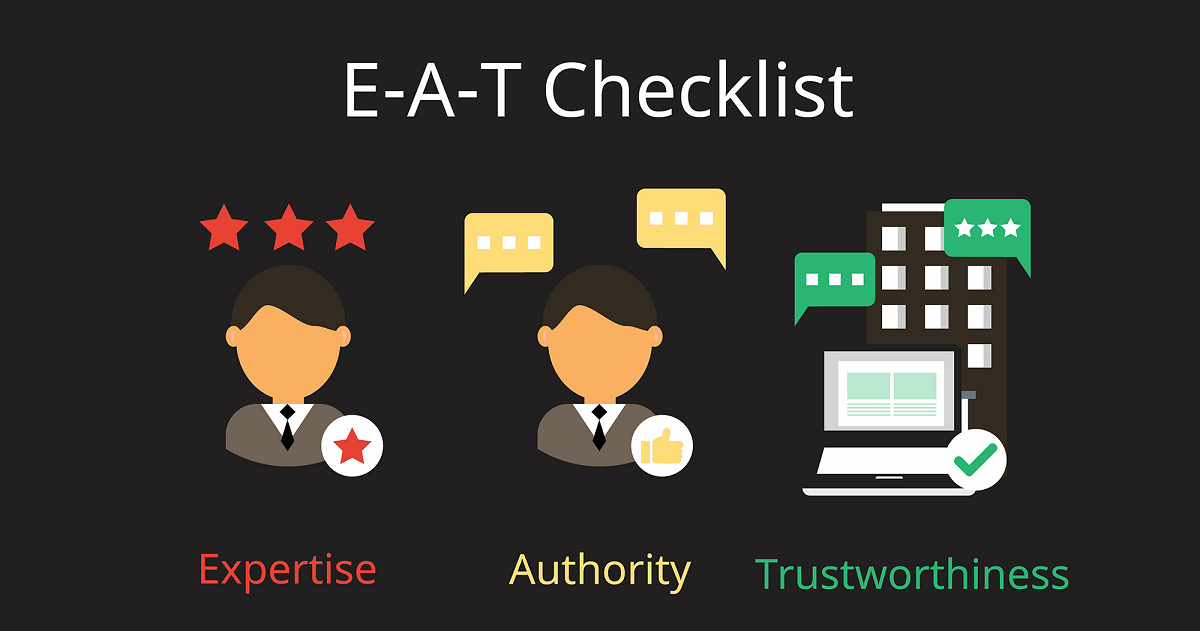BLOG
The Role Of SEO In Political Campaigns

In the ever-evolving landscape of politics, where the battleground extends beyond traditional arenas into the vast realm of the internet, one element reigns supreme: Search Engine Optimization (SEO). Welcome to our exploration of the pivotal role SEO plays in modern political campaigns.
In the not-so-distant past, political campaigning relied heavily on physical rallies, door-to-door canvassing, and strategically placed billboards. While these tactics remain relevant, the digital age has ushered in a new era of campaigning, one where the battleground has expanded to the screens of laptops, tablets, and smartphones.
SEO, once relegated to the realm of e-commerce and digital marketing, has now become a linchpin in the success of political campaigns. It's no longer enough for candidates to simply have a presence online; they must strategically optimize their content to ensure it reaches and resonates with their target audience.
But what exactly is SEO, and how does it translate into the political arena? At its core, SEO is the practice of optimizing digital content to rank higher in search engine results, thereby increasing visibility and driving organic traffic. In the context of political campaigns, this means crafting compelling messaging, strategically selecting keywords, and ensuring that a candidate's online presence is easily discoverable by voters seeking information.
Join us as we delve into the intricacies of SEO in political campaigns, exploring its fundamentals, examining successful case studies, and addressing the ethical considerations that arise in this digital frontier. Together, we'll uncover how SEO is reshaping the way politicians connect with constituents and navigate the complex terrain of modern democracy.
Understanding SEO In Political Context
Understanding SEO (Search Engine Optimization) in the political context is crucial in comprehending how modern political campaigns operate and communicate with voters. At its core, SEO revolves around the optimization of online content to rank higher in search engine results, thereby increasing visibility and engagement. In politics, this translates to strategically crafting digital messaging and content to reach and influence voters effectively.
In the past, political campaigning relied heavily on traditional methods such as rallies, door-to-door canvassing, and television advertisements. However, with the exponential growth of the internet and social media platforms, political actors have shifted their focus to the digital realm. This shift has transformed the way campaigns engage with voters, with SEO playing a pivotal role in shaping online strategies.
Political campaigns now invest significant resources in optimizing their websites, social media profiles, and digital content to ensure they appear prominently in search engine results when voters seek information on candidates, policies, or political issues. By understanding the algorithms and ranking factors of search engines like Google, campaigns can tailor their online presence to match the preferences and behaviors of target audiences.
Moreover, SEO in the political context extends beyond mere visibility—it's about shaping narratives, countering opposition messaging, and mobilizing supporters. By strategically incorporating relevant keywords, crafting compelling content, and engaging with voters on platforms they frequent, campaigns can effectively communicate their messages and influence voter perceptions.
Overall, understanding SEO in the political context is essential for modern campaigns to navigate the digital landscape successfully. It's not just about having a presence online; it's about strategically leveraging digital tools to connect with voters, shape opinions, and ultimately win elections.
Case Studies: Successful Implementation Of SEO In Political Campaigns
Case Study 1: Campaign X - Leveraging Local SEO to Mobilize Grassroots Support
Background:
Campaign X, a mayoral candidate in a mid-sized city, aimed to connect with voters on a hyper-local level to mobilize grassroots support. Recognizing the importance of online visibility, the campaign strategically employed local SEO tactics to boost its online presence and engage with the community.
Strategy:
- Optimized Website: The campaign built a user-friendly website optimized for local search. They included relevant keywords such as the candidate's name, campaign slogans, and key issues facing the city.
- Google My Business: Campaign X claimed and optimized their Google My Business listing, ensuring accurate information about the candidate and campaign events.
- Localized Content: They created localized content, including blog posts, event listings, and community outreach initiatives, to resonate with voters in specific neighborhoods.
- Social Media Engagement: The campaign actively engaged with local communities on social media platforms, sharing relevant content and encouraging user-generated content using campaign hashtags.
Results:
- Increased Visibility: Campaign X saw a significant increase in online visibility within the targeted geographic area, appearing prominently in local search results.
- Community Engagement: By focusing on localized content and engagement, the campaign fostered a sense of community involvement and received positive feedback from voters.
- Mobilized Support: The strategic use of local SEO helped Campaign X mobilize grassroots support, leading to increased volunteer sign-ups, donations, and voter turnout on election day.
Case Study 2: Campaign Y - Using SEO to Counter Negative Press and Shape Narrative
Background:
Campaign Y, a congressional candidate, faced a barrage of negative press and false narratives spread by opponents and media outlets. To regain control of the narrative and present their platform accurately to voters, the campaign turned to SEO as a strategic tool.
Strategy:
- Reputation Management: Campaign Y implemented a reputation management strategy, optimizing content to push down negative search results and promote positive stories about the candidate.
- Keyword Monitoring: The campaign monitored relevant keywords related to the candidate and election, allowing them to respond quickly to misinformation and shape the online conversation.
- Content Creation: They produced high-quality, authoritative content addressing key issues and showcasing the candidate's qualifications and accomplishments, which ranked highly in search results.
- Strategic Link Building: Campaign Y engaged in strategic link building initiatives to boost the credibility and authority of their online content, improving search rankings and visibility.
Results:
- Mitigated Negative Press: Through targeted SEO efforts, Campaign Y was able to mitigate the impact of negative press by displacing unfavorable search results with positive and neutral content.
- Improved Perception: The campaign successfully shaped the online narrative, presenting the candidate in a more favorable light and dispelling false rumors and misinformation.
- Enhanced Credibility: By focusing on high-quality content and strategic link building, Campaign Y enhanced the credibility and authority of their online presence, gaining trust among voters and stakeholders.
Challenges And Ethical Considerations In Political SEO
A. Balancing Transparency and Strategy:
In the realm of political SEO, there exists a delicate balance between transparency and strategic messaging. While optimizing content to appeal to specific voter demographics is standard practice, there's a risk of veering into manipulation or deceit. Campaigns must navigate this fine line carefully, ensuring that their SEO tactics remain ethical and transparent to maintain the trust of constituents.
B. Addressing Misinformation:
The proliferation of misinformation poses a significant challenge in political SEO. Given the influence of search engine algorithms in shaping public perception, there's a responsibility for political entities to disseminate accurate information. However, some may exploit SEO techniques to amplify false narratives or suppress opposing viewpoints. Ethical considerations demand a commitment to combatting misinformation and promoting truthfulness in online political discourse.
C. Privacy Concerns and Data Security:
Political campaigns often rely on vast amounts of user data to tailor their SEO strategies effectively. However, the collection and utilization of this data raise concerns about privacy and data security. Unauthorized access to sensitive voter information, whether through hacking or unethical data practices, can undermine trust and compromise democratic principles. Campaigns must prioritize robust data protection measures and adhere to ethical guidelines to safeguard voter privacy.
D. Influence of Special Interests:
The involvement of special interest groups and external stakeholders in political SEO introduces ethical complexities. Campaigns may face pressure to prioritize the interests of donors or influential organizations over the needs of the electorate. This dynamic can distort the democratic process and undermine the integrity of political discourse. Striking a balance between engaging with stakeholders and upholding the public interest is essential to maintain ethical standards in political SEO.
E. Ensuring Accessibility and Inclusivity:
Accessibility and inclusivity are paramount considerations in political SEO. While digital platforms offer unprecedented reach, they also risk excluding segments of the population with limited internet access or digital literacy. Campaigns must ensure that their online content is accessible to all individuals, regardless of socioeconomic status or technological proficiency. Embracing inclusive design principles and amplifying diverse voices can foster a more equitable political landscape.
F. Regulatory Compliance:
Regulatory compliance presents a significant challenge for political campaigns engaging in SEO practices. The evolving landscape of digital regulations, including data protection laws and electoral advertising guidelines, adds complexity to campaign strategies. Failure to comply with legal requirements can result in reputational damage, financial penalties, or even legal repercussions. Campaigns must stay abreast of regulatory developments and adhere to ethical standards to mitigate compliance risks in political SEO.
G. Preserving the Integrity of Search Algorithms:
Search engines play a pivotal role in shaping the online visibility of political content. However, there's a risk of manipulation or distortion of search algorithms to promote certain agendas or suppress opposing viewpoints. Maintaining the integrity and impartiality of search algorithms is crucial to uphold the principles of fairness and democracy. Collaboration between search engine providers, policymakers, and civil society stakeholders is essential to address algorithmic biases and ensure a level playing field in political SEO.
Looking Ahead: The Future of SEO In Political Campaigns
A. The Intersection of Technology and Politics: As technology continues to advance, the integration of AI, machine learning, and big data analytics will reshape how political campaigns approach SEO. Expect to see more sophisticated tools and strategies aimed at understanding voter behavior, predicting trends, and optimizing campaign messages in real-time.
B. Evolving Search Landscape: With the rise of voice search, mobile optimization will become even more crucial for political campaigns. Candidates will need to adapt their SEO strategies to accommodate voice-enabled devices and ensure their messages are accessible across various platforms and devices.
C. Algorithm Changes and Regulation: As search engine algorithms evolve and governments implement new regulations on online advertising and data privacy, political campaigns will need to stay nimble and compliant. Ethical SEO practices will become increasingly important, and campaigns will need to balance strategic objectives with transparency and accountability.
D. Globalization of Political SEO: With the increasing interconnectedness of the world, political campaigns will extend their SEO efforts beyond national borders. International collaborations, cross-cultural SEO strategies, and multilingual optimization will become essential for candidates looking to reach diverse audiences and influence global politics.
E. The Rise of Digital Disinformation: As online misinformation and fake news continue to proliferate, political campaigns will face new challenges in navigating the digital landscape. SEO will play a critical role in combatting disinformation by promoting credible sources, fact-checking resources, and transparent communication strategies.
F. Democratization of Political Engagement: SEO has the potential to democratize political engagement by empowering grassroots movements, marginalized communities, and independent candidates to amplify their voices and mobilize support online. As access to information and technology expands, political campaigns will need to embrace inclusive SEO strategies that prioritize accessibility and representation for all.
SEO has become an indispensable tool in political campaigning, offering candidates unprecedented opportunities to connect with voters and shape public discourse. However, with this power comes responsibility. It's crucial for campaigns to prioritize transparency, integrity, and ethical practices in their SEO efforts.
As citizens, we can play a vital role in shaping the future of political campaigning. Educate yourself on SEO practices, advocate for transparency, support ethical campaigns, and get involved in the democratic process. Together, let's harness the power of SEO to build a more informed and inclusive democracy.











